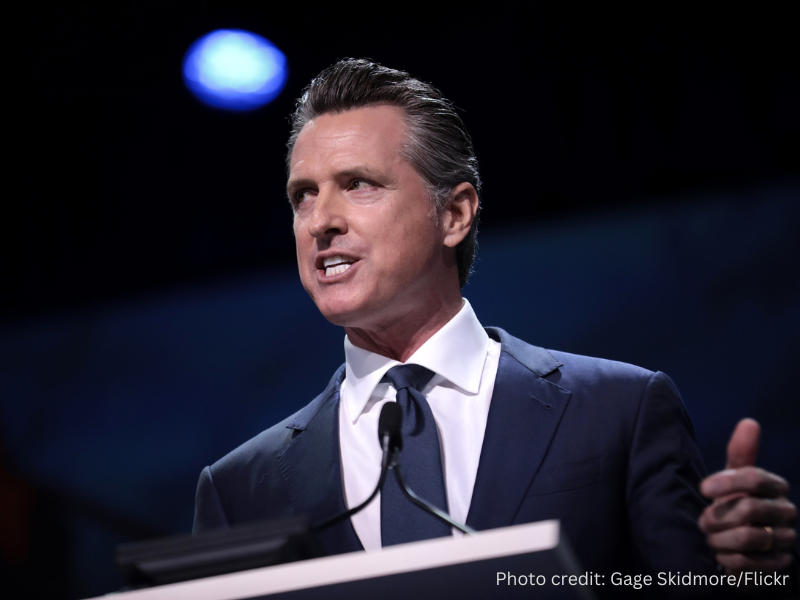Climate Change Weekly #143
While stories of Ebola and ISIS dominated the headlines once again last week, the Obama administration’s Department of Defense announced a potentially more far-reaching, costly, and possibly dangerous public policy decision: Defense Secretary Chuck Hagel unveiled a comprehensive plan for how the U.S. military will address the effects of climate change. Hagel’s announcement came at a Conference of the Defense Ministers’ of the Americas at a posh resort in Arequipa, Peru on October 13.
The opening remarks by Peruvian President Ollanta Humala to the ministers of the 34 nations represented set the alarmist tone for the conference. Humala said, “If we don’t do anything to address the effects of climate change, there will be nothing left.”
The Pentagon’s “2014 Climate Change Adaptation Roadmap” argues global warming will bring new demands on the military. It warns coastal military installations vulnerable to flooding will need to be modified or relocated; humanitarian assistance missions will be more frequent responding to more intense natural disasters; and weapons and other critical military equipment will have to work under more severe weather conditions.
In response, Lauri Regan writes:
Of all of President Obama’s failings – and there are too many to count – his abysmal performance as commander-in-chief is the most egregious. … However, the latest announcement that the Pentagon is unveiling its comprehensive plan for the military’s response to climate change – at the same time that ISIS is announcing its plans to behead yet another American and is closing in on Kobani in Syria and Baghdad in Iraq – is a breathtaking measure even from this administration.
While the mission of DOD is to provide military forces needed to deter war and protect the security of the country, Regan is confident fighting climate change is not what the founders had in mind.
The Pentagon’s report asserts “decisively that climate change poses an immediate [emphasis mine] threat to national security,” without actually identifying a specific immediate threat. Rather it cites possible future problems like rising sea levels and increased drought. The report ignores the fact sea level rise has slowed considerably for the past 12 years, there is no evidence storms are increasing in number or intensity, the greatest drought in America’s history was in the 1930s, not now, and much of Africa continues to green.
Meanwhile the U.S. is fighting a war on terrorism on multiple fronts, confronts an aggressive Russia, and is sending U.S. soldiers to fight Ebola in Africa. Evidently these conflicts and humanitarian actions aren’t immediate enough to keep our attention.
As Investor’s Business Daily points out:
The report … ends up making the military look rather pathetic, as though it’s extremely vulnerable to bad weather. … That the military can only train soldiers in pleasant weather? Or that the Pentagon’s equipment isn’t currently designed to work in extreme weather conditions – like, say, a desert?
John Kerry asserts global warming ranks with terrorism and weapons of mass destruction as the greatest threats facing our nation. The Department of Homeland Security has stated global warming is “a major area of homeland security risk.” President Barack Obama has argued global warming is “one of our most significant national security problems.” If all this is true, IBD asks, then why isn’t the administration factoring in CO2 emissions impact before undertaking any particular course of action?
In short, if we are to take the administration’s claims concerning the immediacy of and danger from global warming seriously, shouldn’t DOD undertake only CO2-neutral wars and humanitarian missions?
SOURCES: American Thinker and Investor’s Business Daily
 |
IN THIS ISSUE
IPCC misses methane sink … Climate models fail again: Frees and CO2 … Geologists: Change is constant … Greenpeace called evil by founder … Oops! They did it again: Climate models’ faulty sea-level rise predictions … On rainfall and floods, models wrong again
IPCC MISSES METHANE SINK
Oregon State University scientists have discovered carbonate rocks are a previously unrecognized methane sink. Methane seeps in oceans were first discovered 30 years ago. Research has shown microbes feed upon the methane keeping it from entering the atmosphere. Now Nature Communications reports carbonate rocks created as a by-product of the interaction between the seeps and the microbes also provide a living habitat for the methane-consuming microbes. These rocks, or rather the microbes in carbonate habitat, consume copious amounts of methane. Absent the microbes in the world’s oceans and the carbonate rocks, methane levels would be much higher. The action of these rocks in removing methane is another factor not accounted for in present climate models.
SOURCE: Watts Up With That?
CLIMATE MODELS FAIL AGAIN: TREES AND CO2
New research published in the Proceedings of the National Academy of Sciences shows IPCC and the climate models it relies upon underestimate the amount of CO2 removed from the atmosphere by plants. Plants are absorbing at least 16 more percent CO2 than previously thought, partially explaining why climate models consistently overestimate the growth rate of CO2 in the atmosphere. Properly accounting for the amount of carbon dioxide lingering in the atmosphere is critical to projections of future climate change.
SOURCE: Proceedings of the National Academy of Sciences
GEOLOGISTS: CHANGE IS CONSTANT
Geologists Nick Eyles and Andrew Miall, both of the Department of Earth Sciences at the University of Toronto, say it is patently obvious scientists do not sufficiently understand Earth’s complex systems to propose economic and environmental policies with any expectation the desired results will occur. Our knowledge of the atmosphere, the depths of the oceans, and the interior of Earth is rudimentary. Unfortunately, too often the practice of science today is “crisis-driven,” where funding, politics, and the media are inseparable, corrupting science and its practitioners. This is especially true in the field of climate science.
SOURCE: The Geological Society of America
GREENPEACE CALLED EVIL BY FOUNDER
An “evil organization” that has “lost concern for humanity” is how Greenpeace founder Patrick Moore described the organization in a recent interview. Moore says Greenpeace is now more interested in politics and the pursuit of power than in using science to better mankind or the environment. The policies it pursues, like the suppression of GMOs and CO2 restrictions, hurt the poverty-stricken and the hungry.
SOURCE: The Daily Mail
OOPS! THEY DID IT AGAIN: CLIMATE MODELS’ FAULTY SEA-LEVEL RISE PREDICTIONS
A new paper published in the journal Ocean Science reports satellite measurements of sea levels show the rate of sea level rise has slowed considerably since approximately 2002. Since 2002, sea level rise has decelerated 31 percent, and since 2004, the rate of rise had slowed by 44 percent. At this pace, scientists expect sea level rise of less than 7 inches per century. This might reflect the ongoing pause in warming, which, like the decline in the rate of sea level rise, climate models not only failed to predict, but in fact predicted just the opposite.
SOURCE: The Hockey Schtick
ON RAINFALL AND FLOODS, MODELS WRONG AGAIN
Contrary to assertions commonly made by climate alarmists, there has been no significant change in rainfall amounts, intensity, or trends in recent years. Even IPCC makes no strong claims about changes in rainfall, noting over the twentieth century it cannot discern whether there has been an increase or decrease in rainfall amounts or intensity. When hydrologist Demetris Koutsoyiannis and colleagues compared predictions of a group of climate models to observations at a selection of different locations around the globe, they found, on annual and climate-relevant timescales, climate simulations were less than useless.
SOURCE: Global Warming Policy Foundation




